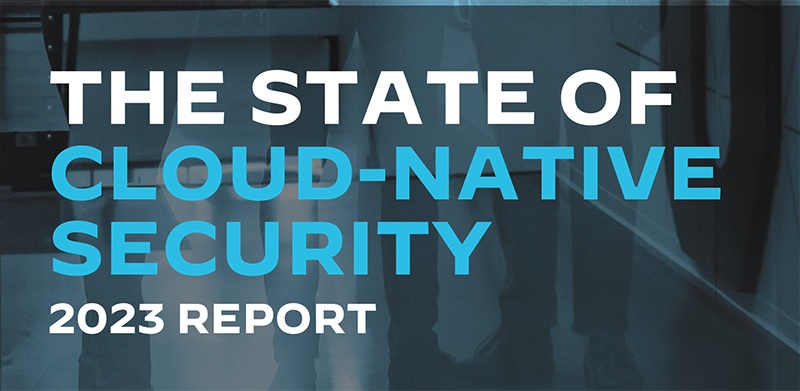Red Hat and Oracle announced the general availability of Red Hat OpenShift on Oracle Cloud Infrastructure (OCI) Compute Virtual Machines (VMs).
With organizations of all sizes moving more of their operations to the cloud, a majority are struggling to automate cloud security and mitigate risks, according to the 2023 State of Cloud-Native Security Report, a Palo Alto Networks survey of more than 2,500 C-level executives around the world.

It's one reason why many companies are trying to improve security earlier in the development process, and looking for fewer vendors that can offer more security capabilities.
Here are some of the survey findings:
Cloud Use Has Grown, Along With Security Concerns
The expansion of hybrid work during the pandemic drove organizations to expand their use of clouds by more than 25%. As a result, DevOps teams are being pressed to deliver production code at warp speed — making application security more complex, and putting pressure on security organizations to keep pace.
Most Organizations are Slow to Detect and Respond to Threats
90% of organizations surveyed said they cannot detect, contain and resolve cyber threats within an hour. Bad actors are working just as fast as developers to take advantage of organizations' vulnerabilities. What could go wrong often does go wrong and any cloud asset that is inadvertently exposed to the internet can be compromised within minutes. Detecting threats in real-time represents the new frontier of cloud security.
Teams Don't Understand Their Security Responsibilities
When asked about the challenges of moving to the cloud, respondents' top concerns remained unchanged from the 2020 report: struggles with comprehensive security, compliance, and technical complexity. A large majority (78%) of organizations said they have distributed responsibility for cloud security to individual teams, but almost half (47%) said a majority of their workforce does not understand their security responsibilities.
A Greater Need for Code-to-Cloud Security
As more applications are being built in the cloud using off-the-shelf software, there's a risk that any vulnerability in the development process could compromise an entire application later on. That's why more companies are encouraging a deeper level of engagement between application developers and security tools and teams — with 81% of respondents saying they have embedded security professionals inside their DevOps teams.
"With three out of four organizations deploying new or updated code to production weekly, and almost 40% committing new code daily, no one can afford to overlook the security of cloud workloads," said Ankur Shah, SVP, Prisma Cloud, Palo Alto Networks. "
As cloud adoption and expansion continues, organizations need to adopt a platform approach that secures applications from code to cloud across multicloud environments."
Moving Towards Consolidation
Three quarters of the leaders surveyed say they struggle to identify which security tools are necessary to achieve their objectives. This has led many of them to implement numerous single point solutions — with the average organization using more than 30 security tools, including six to 10 dedicated to cloud security.
The sheer number of security tools makes it difficult for leaders to have in-depth visibility into their entire cloud portfolio.
76% of survey respondents reported that using multiple security tools creates blind spots that affect their ability to prioritize risk and prevent threats.
And 80% said they would benefit from a centralized security solution that sits across all of their cloud accounts and services.
A Clear Path Forward
Despite the upheaval caused by the pandemic, organizations have mostly been able to succeed in their cloud expansions — and organizations that made cloud infrastructure a strategic focus across the business were generally more successful. This makes cloud security a clear enabler of business outcomes.
Of course better security does not guarantee success. But having security under control — consolidating tools and vendors and using proven DevSecOps and security automation strategies — lets development teams do their jobs better and gives organizations the tools they need to succeed.
Industry News
The Software Engineering Institute at Carnegie Mellon University announced the release of a tool to give a comprehensive visualization of the complete DevSecOps pipeline.
Synopsys has entered into a definitive agreement with Clearlake Capital Group, L.P. and Francisco Partners.
Postman released v11, a significant update that speeds up development by reducing collaboration friction on APIs.
Sysdig announced the launch of the company’s Runtime Insights Partner Ecosystem, recognizing the leading security solutions that combine with Sysdig to help customers prioritize and respond to critical security risks.
Nokod Security announced the general availability of the Nokod Security Platform.
Drata has acquired oak9, a cloud native security platform, and released a new capability in beta to seamlessly bring continuous compliance into the software development lifecycle.
Amazon Web Services (AWS) announced the general availability of Amazon Q, a generative artificial intelligence (AI)-powered assistant for accelerating software development and leveraging companies’ internal data.
Red Hat announced the general availability of Red Hat Enterprise Linux 9.4, the latest version of the enterprise Linux platform.
ActiveState unveiled Get Current, Stay Current (GCSC) – a continuous code refactoring service that deals with breaking changes so enterprises can stay current with the pace of open source.
Lineaje released Open-Source Manager (OSM), a solution to bring transparency to open-source software components in applications and proactively manage and mitigate associated risks.
Synopsys announced the availability of Polaris Assist, an AI-powered application security assistant on the Synopsys Polaris Software Integrity Platform®.
Backslash Security announced the findings of its GPT-4 developer simulation exercise, designed and conducted by the Backslash Research Team, to identify security issues associated with LLM-generated code. The Backslash platform offers several core capabilities that address growing security concerns around AI-generated code, including open source code reachability analysis and phantom package visibility capabilities.
Azul announced that Azul Intelligence Cloud, Azul’s cloud analytics solution -- which provides actionable intelligence from production Java runtime data to dramatically boost developer productivity -- now supports Oracle JDK and any OpenJDK-based JVM (Java Virtual Machine) from any vendor or distribution.




